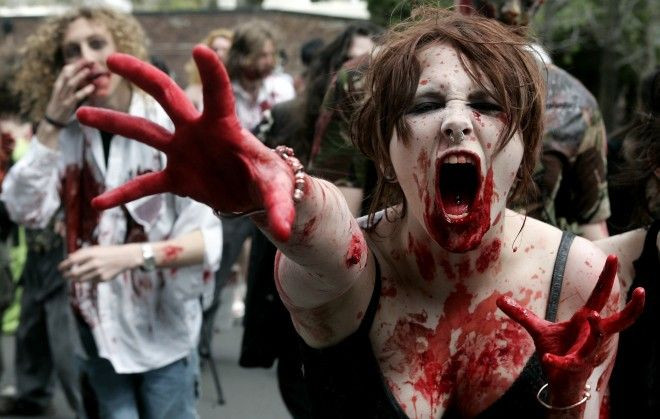What will you do when 'zombies' walk on streets?

Remember the movie Resident Evil? You must have bitten your nails when the hungry flesh-eating zombies walked on the street. But have you ever thought of zombies being a reality? A blog post by the US Centers for Disease Control and Prevention has talked about how to get prepared for such emergencies when the dead walks on the street. You may laugh now, but when it happens you'll be happy you read this, and hey, maybe you'll even learn a thing or two about how to prepare for a real emergency, the blog said.
What the blog wanted to do was to mention zombie apocalypse as a lighthearted way to get Americans to read about preparing for emergencies like hurricanes or pandemics. If you prepare for the zombie apocalypse, you'll be prepared for all hazards, said CDC spokesman Dave Daigle, Reuters reported. The effort has done the trick for them. The blog post drove so much traffic that it crashed the website, said the agency.
The word zombie comes from Haitian and New Orleans voodoo origins. But over the years, its meaning has been changed a bit. It refers to a human dead body that is reanimated mysteriously to serve the undead, the blog said.
There are various movies that have depicted zombies as being created by an infectious virus. According to Zombie Survival Guide, the cause of zombies is a virus called solanum. Based on the 1968 horror film Night of the Living Dead, Harvard psychiatrist Steven Scholzman wrote a (fictional) medical paper on the zombies, where he referred to the condition as Ataxic Neurodegenerative Satiety Deficiency Syndrome caused by an infectious agent.
But it's the rise of zombies in pop culture, said the blog, that has given weight to the idea that a zombie apocalypse can be a reality.
The blog then tells about possible emergency precautions that can be very handy during any sort of emergency situations like flood, earthquake or even a zombie attack. If zombies did start roaming the streets, CDC would conduct an investigation much like any other disease outbreak. CDC would provide technical assistance to cities, states, or international partners dealing with a zombie infestation, the blog said.
By the end of Wednesday, the website crashed as the CDC blog post managed to get 60,000 hits, whereas a typical CDC blog post might get between 1,000 and 3,000 hits, Reuters reported.
The Zombie Apocalypse campaign is a social media effort by the CDC's Public Health and Preparedness center to spread the word about the June 1 start of hurricane season. It was designed to reach a young, media-savvy demographic, Daigle said.
© Copyright IBTimes 2025. All rights reserved.






















